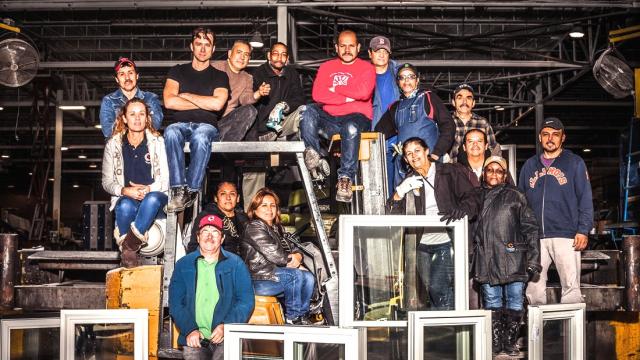
Over the course of the past few decades, the American Dream has become, for many, something of a nightmare. In the context of wage stagnation for most workers, economic mobility is now the stuff of fantasy. As a result, the United States has fallen behind most other developed countries in this and other economic indicators. Meanwhile, the rich keep getting richer, and, contrary to the promises of mainstream economists, their gains have refused to “trickle down.”
But while it is easy to decry the status quo, forging a path ahead is another matter altogether. A new report from the Roosevelt Institute answers this challenge by way of a reform agenda based on an incisive analysis of how we got here. At the core of the argument in “Rewriting the Rules of the American Economy: An Agenda for Growth and Shared Prosperity” is the conviction that, as Roosevelt Institute chief economist Joseph E. Stiglitz and his co-authors put it, “Inequality is not inevitable: it is a choice we make with the rules we create to structure our economy.”
In other words, the contemporary gap between rich and poor is not the product of – nor can it be corrected by – Adam Smith’s “invisible hand.” Rather, it was born of deliberate choices made by human actors. Only a holistic reappraisal of the legal and policy structure undergirding the American economy, therefore, offers hope for real change.
Our current crisis of inequality, the report’s authors contend, is in large part the result of a fundamental misunderstanding within mainstream economic theory. That is, the long-held conviction that a society must choose between either equality or economic performance is just plain false. Instead, research since the Great Recession has demonstrated that the two aims can be complementary. “No more false choices,” write Stiglitz et al. “Changing course won’t be easy in the current environment, but we can choose to fix the rules structuring our system.”
Per their organizational mission, the report’s authors build on the legacy of Franklin Roosevelt’s New Deal to offer a two-pronged approach to rebuilding the United States economy in the interest of both equality and prosperity. The first prong, “Taming the top” involves reforming the financial sector and enhancing market competition to wrest power from the one percent. The second prong, “Growing the middle,” redistributes that power to workers by prioritizing full employment and expanding economic security and opportunity.
While the policy agenda outlined in “Rewriting the Rules of the American Economy” represents a bold departure from piecemeal reform, it is nevertheless situated squarely within conventional economic theory and practice. It fails to address, never mind leverage, the potential healing power of the alternative markets and producer-consumer relations embodied by the “real” sharing economy. In this way, the report really does feel like a throwback to Great Depression-era America: while they acknowledge the extent to which our current system is broken, its authors propose disruptions (make-work infrastructure programs, for instance) that seem curiously out of touch with both contemporary technology and the growing sharing movement.
The timing of the report’s publication is no coincidence, as a web memorandum dated July 13 makes clear. In the memo, the Roosevelt Institute urges all United States presidential candidates to consider incorporating all or some of the policy agenda outlined in “Rewriting the Rules of the American Economy” into their platforms.
Of course, many contenders are likely to continue focusing on social-policy flashpoints rather than the economy – despite consistent evidence that voters care more about the latter than about other issues. But for those who do make economic reform a substantive part of their message, and for those of us whose day-to-day experience makes ignoring the socioeconomic reality impossible, the Roosevelt Institute’s new New Deal offers hope for a truly greater America.
3 WAYS TO SHOW YOUR SUPPORT
- Log in to post comments













